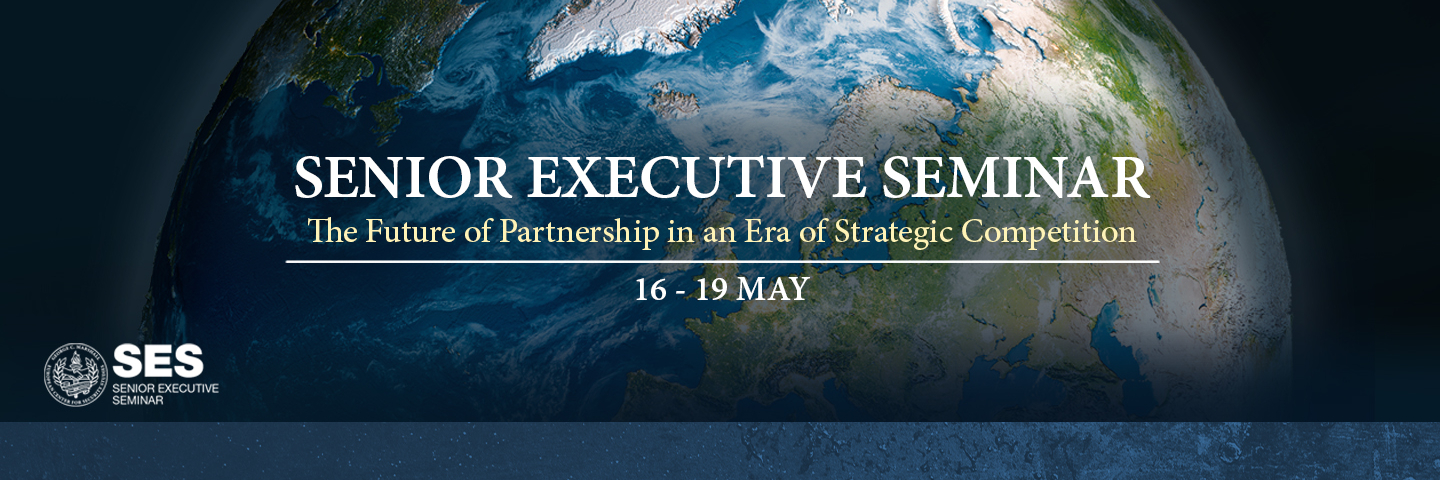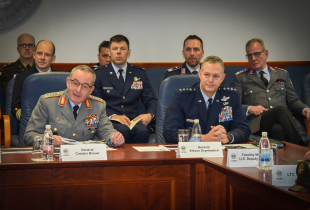
Resilience and Reciprocity: The Future of Partnership Amidst Strategic Simultaneity
Executive Summary
Russia’s 2022 invasion of Ukraine constitutes the most visible affront to the rules-based international order confronted by the Euro-Atlantic community today. Its ramifications, however, extend far beyond the surrounding Black Sea Region and even the European continent. To the South, trade disruptions stemming from the conflict have compounded political instability in the Sahel, already weakened by inflation and continued sub-state extremist violence; simultaneously to the East, the People’s Republic of China has closely monitored developments in Ukraine, as it escalates efforts to assert itself as a major military, economic and political force both regionally and internationally. Russian aggression perfectly encapsulates the principle of strategic simultaneity, whereby threats to the rules-based international order are now increasingly multifaceted and interconnected.
Euro-Atlantic policy must, therefore, work to identify these connections and engage states far beyond its immediate region as equal partners, forging security relations centered on resilience and reciprocity. This report begins by highlighting these issue linkages in four key regions: the Balkans, the Black Sea, the Indo-Pacific and Africa. Rooted in the insights of security practitioners from these four theaters, the report offers a foundational roadmap for strategic partnerships with the Euro-Atlantic community, leveraging a whole-of-government and whole-of-society approach to countering known and emerging threats to common values.
About the Author
Mathias Katsuya is an undergraduate student of International Relations at the University of St. Andrews in Scotland. He previously served as an Intern at the George C. Marshall European Center for Security Studies where he was assigned to the Senior Executive Seminar and the Program on Terrorism and Security Studies. Mathias’ research interests largely center on irregular warfare and intelligence studies, particularly regarding the application of insights and lessons-learned from counterterrorism to new strategic threats.
The George C. Marshall European Center for Security Studies in Garmisch-Partenkirchen, Germany is a German-American partnership and trusted global network promoting common values and advancing collaborative geostrategic solutions. The Marshall Center’s mission to educate, engage, and empower security partners to collectively affect regional, transnational, and global challenges is achieved through programs designed to promote peaceful, whole of government approaches to address today’s most pressing security challenges. Since its creation in 1992, the Marshall Center’s alumni network has grown to include over 15,000 professionals from over 160 countries. More information on the Marshall Center can be found online at www.marshallcenter.org.
Marshall Center Security Insights are short analytical articles that identify, explain, and put into context significant current and emerging defense and security issues. The series is aimed at the needs of political decision makers and others who are looking for concise summaries and analyses of important contemporary security topics. Security Insights are generally authored by Marshall Center faculty and staff.
The articles in the Security Insights series reflect the views of the authors and are not necessarily the official policy of the United States, Germany, or any other governments.
